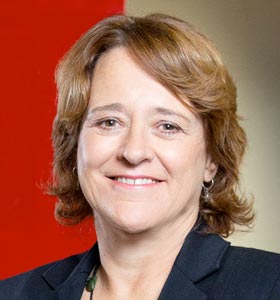
For palliative care nurse practitioner Jackie Robinson, a nurse’s personal view on assisted dying isn’t relevant – it is their professional duty of care to ensure patients can make their own choice.
“Ultimately, it doesn’t matter if I agree with assisted dying… What is important is whatever we are offering as a society in New Zealand is that it’s safe, it’s equitable and it’s available to all,” Robinson said. “The choice people make at the end of their life is entirely up to the people who are in that situation.”
The polarised debate – Hospice New Zealand has stated that assisted dying has no place in palliative care – “doesn’t help the people who need the services”, says Robinson. She has 25 years’ experience in palliative care and is a senior lecturer at the University of Auckland. For her, assisted dying is part of palliative care, not an alternative.
She says it’s important to have a strong nursing voice at the SCENZ table. “Over the years, when there has been debate about euthanasia or assisted dying in various countries around the world, it has been very much a medically dominated topic.
Even some of the language that’s used – medically assisted dying – suggests it’s a medical process and I don’t think the language that’s used around it acknowledges the huge contribution that nursing has to make in all different parts of the process…”
Nurses often had more consistent and lengthier relationships with people and whānau, compared to the more “episodic” interactions of doctors, giving them a deeper understanding of people’s lives and needs. Nurses were trained to be “much more person-centred rather than disease-centred”, which meant they were uniquely placed to support the assisted dying process, Robinson said.
And – with more frequent patient contact and conversations – nurses should be prepared for questions. “I wouldn’t be surprised if nurses are the ones going to be asked about it,” Robinson said. “Our job is to be as informed as possible about the Act, as professionals, and support patients and show them where they can get information.”
The Ministry of Health website had a wealth of resources on the EOLCA, she said.
Nurses ‘a little bit forgotten’
While the Act had been amended to include nurse practitioners (NPs) as health practitioners able to administer the life-ending medication, barriers remained, with the NP role “a little bit forgotten” in the legislation.
NPs were unable to initiate the process, currently. That meant if a patient raised the possibility of assisted dying with an NP, that NP would have to refer to a medical practitioner – who may not know the patient as the NP did – but had to have that initial conversation, Robinson said. This legislative “omission” would likely be addressed by Nurse Practitioners New Zealand in time, and could affect patients in aged care, communities and remote or rural areas. “But that’s what we have got and we need to work with it.”
Amid a global medication shortage, NPNZ was also working to resolve barriers to NPs prescribing life-ending medications. Some replacements supplied under section 29 of the Medicines Act, required ministerial consent, and NPs were not permitted to prescribe them.
In her SCENZ role, Robinson had highlighted that for many people in Aotearoa, the NP might be their primary provider, not always a medical practitioner, and this was increasingly becoming the case. “So we need to make sure that NPs are enabled by legislation to be able to provide equitable care, so that people aren’t disadvantaged by the fact an NP happens to be their primary provider.”
As a result, Robinson had ensured NPs were part of the SCENZ register of health professionals willing to provide end of life care. “You can’t know what you would decide until you’re there yourself – we don’t know what we would choose. It’s up to the people to decide.”


